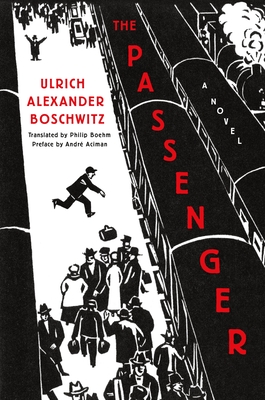What do you think?
Rate this book


266 pages, Hardcover
First published January 1, 1939
Mulling over his situation, he wondered what am I supposed to do now? Because they're still going after Jews. I can't stay a single night in my apartment—not with forty-one thousand marks!It's 1938 and Otto Silbermann, a persnickety neurotic, could not be less suited to running for his life.
We have to leave Germany, but no place will let us in I have enough money to start a new life, but how to get it out of the country? I don't have the nerve to try to smuggle it across. Should I stay or go? What to do?
Should I risk ten years in prison for a currency offense? But what other choice is there? Without money I'd starve out there. Every road leads to ruin, every single one. How am I supposed to fight against the state?
. . .
Other people were smarter. Other people are always smarter! If I'd realized in time what was going on, I could have saved my money. But everyone was constantly reassuring me. Becker [business partner] more than anybody. And fool that I am, I let myself be reassured. . . .
Maybe things aren't half so bad, and the whole business is one big psychosis. But no, I should finally acknowledge the reality of the situation: things are going to get worse—much, much worse! (80-81)
"Waarheen, dacht hij bang. Waarheen? Ik lijk wel gek, ik had met Löwenstein mee moeten gaan. Maar ik ben het reizen zo zat!
[...]
Hoe moet ik het allemaal voor elkaar krijgen, dacht hij wanhopig. Mijn verstand zegt dat ik zelfmoord moet plegen. Maar ik wil leven! Ondanks alles wil ik leven! Daar heb je al je verstand voor nodig, maar dat kan het niet aan, het keert zich tegen me. Het ontkent mijn bestaan. Wat moet ik er dan mee? Omdat ik het begrijp, dacht hij ongelukkig, daarom word ik wanhopig. Ach, begreep ik het maar verkeerd! Dat kan helaas niet meer. Behalve de lijst van mijn verliezen bezit ik niets meer, echt helemaal niets."